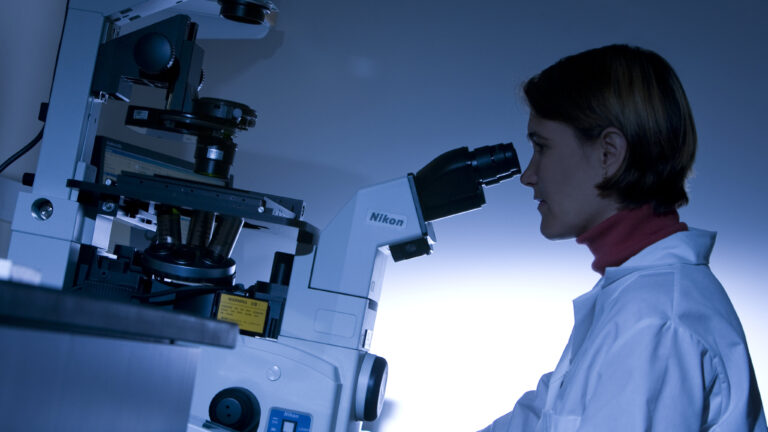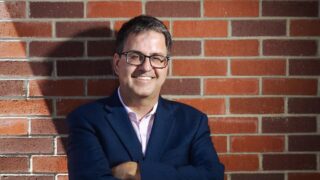Exploring Medical Frontiers
Health care, science, engineering, design and more converge at USC to take on today’s most pressing issues affecting the human body. At the forefront of medical developments worldwide, the university’s cooperative approach models what it means to work together for the common good.

Novel Approaches
Developing biodevices and life-saving medicines is just the beginning. Traditionally, barriers exist between experts in different disciplines fighting the same disease or health problem; at USC, we clear the way for new avenues of collaboration.
This is a critical time in health care where only a select few institutions will have the ability to take advantage of the great advances in science to provide markedly improved clinical care if not cure intractable diseases.
Steven Shapiro, USC Senior Vice President for Health Affairs
USC Michelson Center for Convergent Bioscience
Accelerating discoveries from bench to bedside, the Michelson Center brings together diverse disciplines — think engineering, cinema, information sciences and more — to reimagine biomedical discovery and application.

USC Leonard D. Schaeffer Center for Health Policy & Economics
As one of the nation’s premier policy centers, the Schaeffer Center measurably improves value in health through evidence-based policy solutions, research excellence, and private- and public-sector engagement.

USC Edward R. Roybal Institute on Aging
Advancing research, policy and practice, the USC Edward R. Roybal Institute on Aging improves the lives of older adults and their families from diverse communities locally, regionally and globally.

Department of Population and Public Health Sciences
Through high-impact, interdisciplinary research and training, USC’s population and public health experts are improving lives locally and globally through the Keck School of Medicine of USC and in collaboration with global partners.

Breadth in Medical Research

The Call to Innovate
Some of today’s most demanding illnesses call for courses of action that are not just new, but revolutionary. USC has combined seven schools under its health sciences umbrella to consider the full scope of contributing factors when treating illness: medical, dental, pharmaceutical, occupational therapy, physical therapy, social work and gerontology.
An Ecosystem of New Methods
Trojan scientists, engineers, designers, researchers, health care experts and diverse collaborators are uniting across vast areas of expertise and resources to uncover new medical pathways, bravely breaking traditional barriers in health care research.
How USC researchers are using computer code to write the future of medicine
Remo Rohs discusses the work of USC Dornsife’s Department of Quantitative and Computational Biology.
Witnessing violence harms brains of older teens, but ‘transcendent thinking’ may be an antidote
Teens who think about social issues and violence in reflective ways show greater resilience to the effects of violence exposure on their brain development, USC research finds.
Researcher awarded $3M to study early brain development of babies born to mothers with diabetes
The study will investigate neural biological mechanisms underlying the link between diabetes in pregnancy and child’s risk of obesity.
More than 11% of U.S. 12th graders used new hemp-based THC products last year
USC researchers conducted one of the first nationally representative studies of adolescent use of the psychoactive products, which have intoxicating effects that resemble marijuana.
Large-scale study explores link between smoking and DNA changes across 6 racial, ethnic groups
USC scientists conducted one of the largest-ever multiethnic studies of smoking and epigenetics. It could lead to better ways of predicting risk of smoking-related disease.
USC Stem Cell study shows how gene activity can modulate the amount of immune cell production
A USC study describes how specific gene activity could potentially enhance immune cell production.







